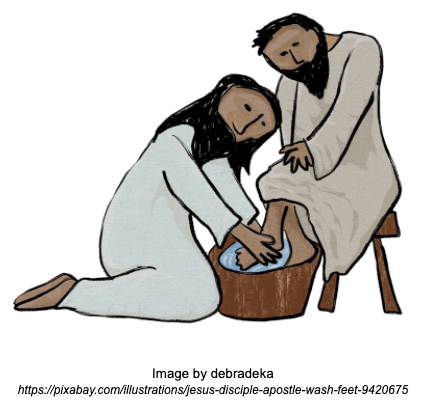We Aren't Broke: A Vision for Creative Stewardship in Today's Church
- Rev. Bobby Musengwa

- Aug 28, 2025
- 4 min read
Most people are uncomfortable talking about money. A survey by Bankrate.com found that more Americans think money is more taboo to talk about than their political or religious views.[1] How amazing is that!

I recall how one of my brothers, upon listening to my sermon for the first time, was so happy and could not wait to go and tell his own pastor that he had finally heard a whole sermon that did not ask for money. It sounded like his pastor talked about money a lot in his sermons. His enthusiasm made me wonder about my reluctance in talking about money in church.
As a young pastor, I once received a letter from a former member. He wrote how much he loved that church he had grown up in. However, he warned me. He said to beware of the mentality of scarcity which was pervasive in that church. At the time, I did not know what he was talking about. Subsequent years enlightened me.
Many congregations seem to embrace the mentality of scarcity. Scarcity of money, of people, of time, etc.
Yet, the scriptures do speak of God's abundant provision and the joy it brings, such as in Psalm 36:8 ("They feast on the abundance of Your house..."), Philippians 4:19 ("And my God will meet all your needs..."), and 2 Corinthians 9:8 ("God is able to bless you abundantly, so that... you will abound in every good work"). Yes, scriptures delight in talking about the abundance God has given us.
Mark Elsdon's book, "We Aren't Broke," which I picked up from Laurie’s bookshelf, is a breath of fresh air for church leaders wrestling with declining resources and wondering about their congregation's future.
Rather than accepting the narrative of scarcity that haunts so many of our churches today, Elsdon invites us to see ourselves as "redemptive entrepreneurs" – a concept that might initially make us uncomfortable but proves deeply biblical.
Drawing from his remarkable experience transforming Pres House at the University of Wisconsin, Elsdon demonstrates how churches can move beyond the traditional "two-pocket" approach of simply receiving and giving money.
Instead, he challenges us to ask: What is the true purpose of our buildings, endowments, and assets? How might God be calling us to use these gifts more creatively for kingdom impact?
The book's central case study is inspiring. It shows how vision and courage transformed an aging campus ministry building into a thriving hybrid of student housing and worship space. Elsdon uses this example to illustrate broader principles of social enterprise, impact investing, and what he calls "redemptive entrepreneurship."
This case study reminds me of the stories I have heard when I first arrived here. The most inspiring story is that of John Knox Ranch rising like a phoenix. I heard that the Presbytery had come close to selling this magnificent camp. Thank God for calling Henry Owen to become JKR director. He and his formidable JKR staff, as well as the JKR Committee which works with him, rose to the challenge of bringing JKR back from oblivion into a remarkable contributor of meaning and spiritual formation to many young campers who go there for time apart, to learn, pray, rest, and build a lifetime of beautiful memories.
There are many such stories in our midst, if we dare to listen well. The God who provided for our ancestors of faith is the same God who is still actively at work in our midst today.
It hearkens back to our ordination vows, especially the one about promising to serve the Lord with “energy, intelligence, imagination, and love.” Local congregations are filled with disciples of Jesus Christ who are serving our communities well, mostly inconspicuously. We pledge to support them through robust vision, mission, and purpose.
What makes Elsdon’s book particularly valuable is its blend of theological reflection with practical guidance. Elsdon doesn't just theorize, he provides tools and frameworks that church leaders can actually use. His background spanning MBA studies, Princeton Theological Seminary (my alma mater) education, and hands-on ministry experience gives him unique credibility to speak into these spaces.
For us Presbyterian leaders especially, this book offers hope during challenging times. As Shane Claiborne notes in his endorsement, our biggest challenge isn't resources – it's imagination.
Elsdon helps us rediscover the abundant possibilities which exist already within our reach, reminding us that the God who multiplied loaves and fishes by the Sea of Galilee continues to work in us through creative, faithful stewardship today.
This book is worth reading for pastors, session members, and anyone involved in church leadership who wants to think differently about mission and money in the 21st century. Scriptures encourage us to use our resources wisely, as good stewards, and to help those in need. Nowhere does it claim that we are broke.
We aren’t broke. The church of Jesus Christ is certainly not lacking. Let us pledge to use our “energy, intelligence, imagination, and love” to deploy the hidden resources for mission and ministry, so that all of our 112+congregations, JKR and MoRanch camps, Schreiner and Trinity Universities, Austin Theological Seminary, Presbyterian Pan American School, and all other institutions with which Mission Presbytery covenants, will continue to have abundant resources to flourish right here and right now, to the glory of God!
Joyfully,
Rev. Bobby Musengwa
[1] Gillespie, Lane, and Rubloff, Tori, ed,.”Survey: Americans think money is more taboo to talk about than their political or religious views,” Bankrate.com, October 7, 2024, : https://www.bankrate.com/credit-cards/news/financialtaboos-survey





Comments